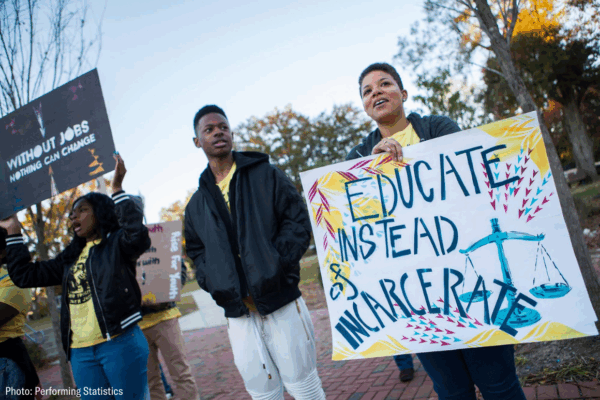Today we sent a letter to members of the Virginia State Crime Commission, urging them not to criminalize the act of sexting. The creation of a new misdemeanor offense is the wrong way to address the growing trend of sexting. This behavior should be addressed by parents and educators, not prosecutors and judges.
Sexting is an issue for teens and their parents nationwide. At least one study says a majority of teenagers have done it. Sexting is the sending of nude or explicit photos, often self-portraits, from one person to another.
We are concerned about the Commonwealth’s willingness to introduce more kids into the school-to-prison pipeline. The evidence is clear that even one interaction with the juvenile justice system makes a child more likely to reoffend. A child who spends time in juvenile detention is also more likely to spend time in prison as an adult. And unfortunately, criminal laws tend to ensnare kids of color at disproportionate rates. Moreover, while criminal laws may deter adults from undesirable behavior, criminal laws do not have the same effect on children, who because of their immaturity are less able to understand the consequences of breaking the law.
There are also constitutional concerns with a new sexting offense. The U.S. Supreme Court has long recognized the fundamental right of parents to raise children without unnecessary intrusion by the state. The Court has also recognized that children have the right to express themselves. And while we may not like that kids send nude images to each other, attempts to criminalize that behavior may violate the First Amendment.
The enactment of a new criminal offense for sexting also threatens to draw limited law enforcement and judicial resources away from their proper focus on violent offenders. Every hour police and courts spend investigating a naked picture taken by one teen and sent to another is an hour not spent dealing with rapes, robberies, and murders.
In our letter, we urge the Crime Commission not to recommend the creation of a new sexting misdemeanor offense in the Commonwealth. Such a crime would infringe on constitutional rights, fail to correct undesired behavior, and pull resources away from more important public safety goals. Instead of recommending that this behavior be criminalized, the Crime Commission should go on record encouraging police and prosecutors to leave regulation of and sanctions for this kind of teen behavior to parents and school officials.
Stay Informed
Sign up to be the first to hear about how to take action.
By completing this form, I agree to receive occasional emails per the terms of the ACLU’s privacy statement.
By completing this form, I agree to receive occasional emails per the terms of the ACLU’s privacy statement.

